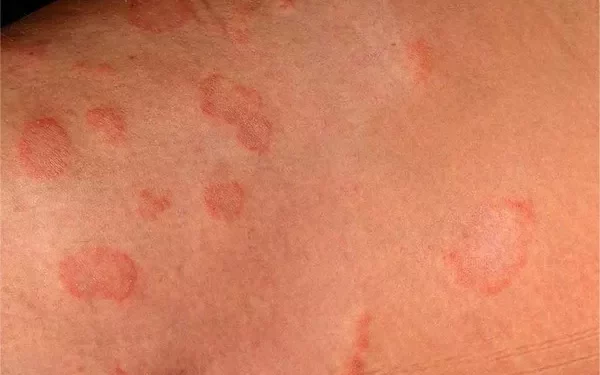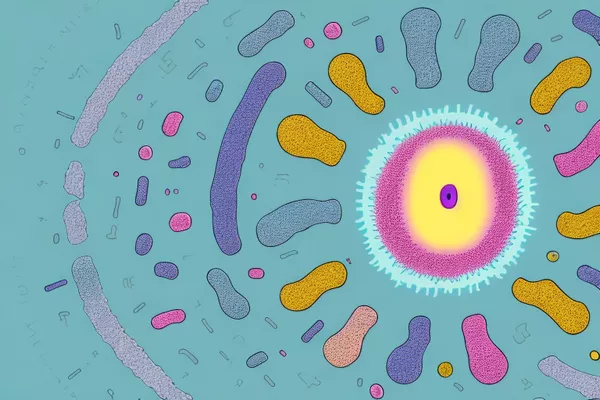Ringworm, also known as tinea, is a common fungal infection that can affect various parts of the body. Despite the name, it is not caused by a worm but by a group of fungi called dermatophytes. The name “ringworm” comes from the characteristic circular, red, and scaly rash that appears on the skin. One of the most common questions people ask when they suspect they have ringworm is whether it itches. In this article, we will explore the itching aspect of ringworm, its causes, symptoms, and how to manage the condition.
What Is Ringworm?
Ringworm is a skin infection caused by fungi. The infection can appear anywhere on the body but is most commonly found on the scalp, feet (athlete’s foot), groin (jock itch), and nails. Ringworm thrives in warm, damp environments, which is why it is common in areas where sweat and moisture accumulate. It is highly contagious and can spread through direct contact with an infected person, animal, or contaminated surfaces.
The fungi that cause ringworm belong to a group called dermatophytes. These fungi live in the outer layer of the skin, nails, and hair. They feed on keratin, a protein found in these tissues, which allows them to grow and spread.
How Does Ringworm Cause Itching?
Ringworm often causes itching because the fungi invade the skin and cause an inflammatory response. As the fungi multiply, the body’s immune system reacts by releasing histamines and other chemicals that can lead to symptoms like redness, swelling, and itching.
The fungal infection irritates the skin and can cause the skin to dry out and flake. In some cases, blisters or pustules can form. All of these factors contribute to the itching sensation that is commonly experienced with ringworm.
Symptoms of Ringworm
Ringworm usually causes a distinctive rash, which is one of the main symptoms of the infection. However, the severity of symptoms can vary depending on the area of the body affected and the individual’s immune response. Here are the common symptoms:
Itching: Itching is one of the most common symptoms of ringworm. The rash may start as a small patch of redness and slowly grow into a circular shape with raised edges. The center of the rash may clear up, creating a ring-like appearance. The surrounding skin becomes red, inflamed, and itchy.
Red, Scaly Rash: The rash is typically red and scaly with a circular shape. It may have raised, defined borders, and the center may appear clearer than the edges. The rash may also develop blisters or pustules, especially if left untreated.
Dry and Cracked Skin: The infected area may become dry, cracked, and flaky. This can cause additional irritation and discomfort, leading to more itching.
Hair Loss: If ringworm affects the scalp, it can cause hair to fall out in patches, leading to bald spots. The scalp may also feel itchy and irritated.
Swelling and Inflammation: In some cases, the affected area may become swollen and inflamed, making it more uncomfortable and itchy.
Blisters or Pustules: In severe cases, blisters or pustules may develop on the affected skin. These may break open, creating crusty scabs that can increase the chances of infection.
Where Can Ringworm Appear on the Body?
Ringworm can affect almost any part of the body. Here are some of the most common areas where people experience itching due to ringworm:
Scalp (Tinea Capitis): Ringworm on the scalp is common in children. It can cause severe itching and may lead to hair loss in affected areas. The rash typically appears as a ring-shaped lesion with raised borders.
Feet (Athlete’s Foot): Ringworm on the feet, also known as athlete’s foot, causes itching, redness, and peeling between the toes and on the soles. This infection thrives in moist areas, such as inside shoes or damp socks.
Groin (Jock Itch): Ringworm in the groin area causes itching, redness, and sometimes blisters. It can spread to the inner thighs, buttocks, and genitals. It is more common in men and is often caused by excessive sweating and friction.
Body (Tinea Corporis): Ringworm on the body is characterized by red, circular, itchy patches of skin. It often occurs on the arms, legs, or torso and may spread to other areas if left untreated.
Nails (Tinea Unguium): Ringworm can affect the nails, causing them to become thick, discolored, and brittle. The infection is usually not as itchy as ringworm on the skin, but it can cause discomfort.
Why Does Ringworm Itch So Much?
The itching associated with ringworm occurs as the body’s immune system reacts to the fungal infection. When the fungi invade the skin, they trigger an immune response. This response involves the release of histamines and other chemicals that cause inflammation and irritation. As a result, the affected area becomes itchy, red, and inflamed.
The fungi also irritate the skin by feeding on keratin, which disrupts the skin’s natural barrier. This makes the skin more vulnerable to irritation and increases the sensation of itching. Additionally, the fungus can cause the skin to become dry and cracked, which can make the itching feel even more intense.
Can You Stop Ringworm from Itching?
Yes, it is possible to manage the itching associated with ringworm. Here are some steps to help relieve the discomfort:
Use Antifungal Creams: Over-the-counter antifungal creams, such as clotrimazole or terbinafine, are commonly used to treat ringworm. These medications can help eliminate the fungi and reduce the inflammation that causes itching. Be sure to apply the cream according to the instructions and continue using it for the recommended duration, even if the itching subsides.
Take an Antihistamine: Antihistamines, such as diphenhydramine (Benadryl), can help reduce itching caused by the release of histamines. These medications block the chemicals that trigger the itchy sensation.
Avoid Scratching: Although it may be tempting, scratching the itchy area can make the infection worse. Scratching can cause the skin to break, leading to secondary bacterial infections. It can also spread the infection to other areas of the body.
Keep the Area Clean and Dry: Fungi thrive in warm, moist environments. Keeping the affected area clean and dry can help prevent the infection from worsening and reduce itching. Be sure to wash the area with soap and water, and dry it thoroughly before applying antifungal creams.
Wear Loose, Breathable Clothing: Tight or restrictive clothing can increase sweating and friction, making the itching worse. Wear loose, breathable fabrics to reduce irritation and allow the skin to heal.
Use Soothing Topicals: Applying soothing lotions or ointments, such as calamine lotion or aloe vera gel, can help reduce itching and inflammation. These products cool the skin and provide relief from discomfort.
How Long Does the Itching Last?
The duration of itching depends on several factors, including the severity of the infection and how quickly it is treated. With proper treatment, the itching from ringworm usually begins to subside within a few days. However, the full treatment course may take 2 to 4 weeks to completely eliminate the fungus and clear up the rash.
If the infection is not treated properly or the fungus is resistant to the medication, the itching may persist longer and could potentially worsen. If you notice that the itching continues after several weeks of treatment or if the rash spreads, it is important to consult a healthcare provider.
When to See a Doctor
While ringworm is generally not a serious condition and can be treated with over-the-counter antifungal creams, it is important to see a doctor in the following situations:
- If the itching becomes unbearable or the rash spreads despite treatment.
- If the rash becomes infected or develops pus-filled blisters.
- If the infection affects your scalp or nails, as these areas may require stronger treatments.
- If you have a weakened immune system, as you may be more susceptible to fungal infections and complications.
A doctor may prescribe stronger antifungal medications or provide additional treatments if necessary.
Conclusion
Yes, ringworm does itch, and it can be quite uncomfortable. The itching is caused by the body’s immune response to the fungal infection and the irritation that the fungi cause as they grow in the skin. Fortunately, with proper treatment, the itching can be managed, and the infection can be cleared up. If you suspect you have ringworm, it is important to treat it early to prevent it from spreading and causing more discomfort.
Related topics



























